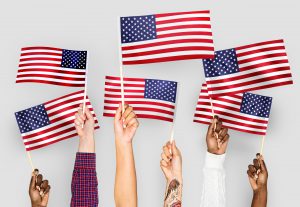
The Library’s hours change for Memorial Day weekend:
Friday, May 24: 8am – 5pm;
Saturday, May 25: Noon – 5pm;
Sunday, May 26: Noon – 5pm;
Monday, May 27 (Memorial Day): 10am – 2am.
Regular hours resume Tuesday, May 28.

The Library’s hours change for Memorial Day weekend:
Friday, May 24: 8am – 5pm;
Saturday, May 25: Noon – 5pm;
Sunday, May 26: Noon – 5pm;
Monday, May 27 (Memorial Day): 10am – 2am.
Regular hours resume Tuesday, May 28.
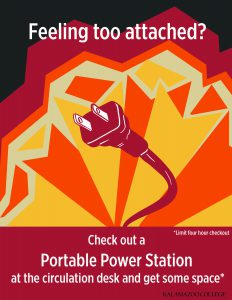
Did you know that the library has portable power stations for you to check out? These batteries allow you to plug in and sit in places that don’t have a convenient power source.
Take one to class, to the quad, to your favorite quiet spot in the library! Charge up and stop worrying about plugging in.
Ask for the portable power station at the Library Circulation Desk. They circulate for four hours, and will help you POWER THROUGH Spring Quarter!
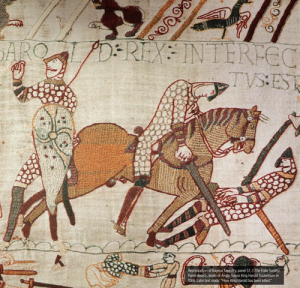
Come see the Spring 2019 Rare Book Room exhibit!
When Horse and Hero Fell: A History of Warfare Through Literature
Date: April 2 – June 7, 2019
Day/Time: Tuesday, Wednesday: 10 a.m.-12 p.m.
other times by appointment
Location: Upjohn Library Commons, room 326
Exhibit title is derived from stanza V of Alfred, Lord Tennyson’s poem “The Charge of the Light Brigade”

May is National Chamber Music Month. What better way to celebrate than to listen to chamber music through the library’ subscription to Naxos Music Library?
Naxos Music Library is a streaming music service of predominantly classical music. ** Please log out of Naxos Music Library when you are finished –
Our subscription is limited to ten concurrent users. **
What are you listening to this month?

Inspired by the 2019 Edward Moritz Lecture in History, Upjohn Library presents an interactive exhibit featuring typewriters and a printing press! Drop by and try your hand at these printing tools.
Upjohn Library Lobby
Wednesday May 1: 10:30 a.m. -12:30 p.m.
Thursday May 2: 11 a.m. -1 p.m.
Dewing Lobby (before the Moritz Lecture)
Thursday, May 2: 5:30 p.m. – 7 p.m.
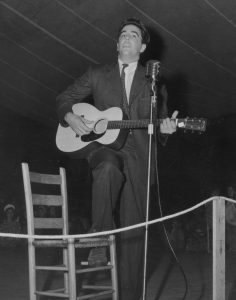
Songs and interviews by the folklorist Alan Lomax are now online for free! Open Culture highlighted this treasure trove of music earlier this month. The recordings were made available by the Association for Cultural Equity, a nonprofit organization founded by Lomax in the 1980s.
Lomax recorded traditional African American songs and stories, as well as pieces from other cultures of America, the Caribbean, Europe and Asia. Musicians, anthropologists, sociologists, historians, and so many more people will be interested in this archive.
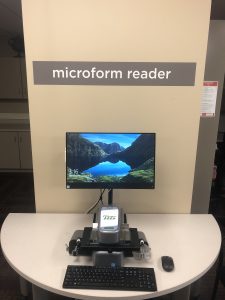
The Library has a new microfilm and microfiche reader, available to use in the Technical Services Suite on the second floor (Room 205).
This machine will allow you to make a PDF of your microfilm or fiche and send it to yourself! No printing necessary!
If you’d like to use the microform reader, email library@kzoo.edu to make an appointment for a time between 8am and 5pm, Monday through Friday.

The Library’s hours change for Easter weekend:
Friday, April 19: 8am – 5pm
Saturday, April 20: Noon – 5pm
Sunday, April 21: 3pm – 2am
Regular hours resume Monday, April 22.

Help out our Information Services team and participate in usability testing during weeks 2-3! Students can spend a few minutes minutes in a short interview and receive a prize for participation. If you have questions, contact Katrina Frank, Katrina.Frank@kzoo.edu.

Kalamazoo College is celebrating Student Worker Appreciation Week! We cannot do what we do without our super duper student workers.
In the Library, student workers:
We couldn’t work without you, students! Thank you!